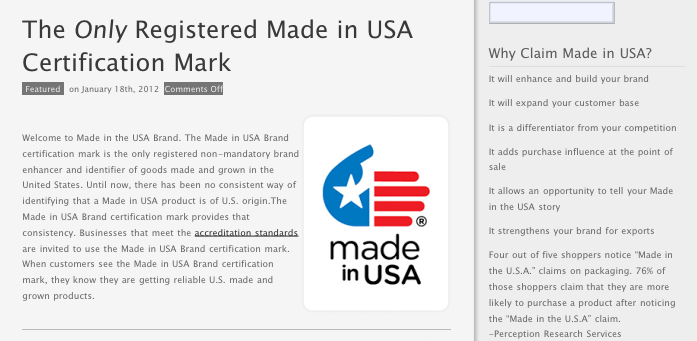You Can’t Sell “Made In The USA” Seals Without Checking That Products Live Up To That Label
This morning, the Federal Trade Commission announced a proposed settlement [PDF] with Ohio-based Made in the USA Brand, LLC to settle charges that the company was selling its “Made in USA” certification seals for anywhere from $250 to $2,000 per year to companies without verifying that labeled products were indeed made in the United States, or disclosing that the manufacturers had done the certifying themselves.
In order to use a statement like “Made in USA” or “Made in America,” the product must be “all or virtually all” made in the United States, according to FTC guidelines.
Many manufacturers use these rules to determine themselves whether their products comply with the FTC standards, but some companies will provide seals indicating that a product has been certified to meet the federal guidelines.
The FTC believes that any company selling such seals should need to either certify that the products are in compliance, or clearly state that products containing the seal were self-certified by the manufacturer.
The government accused the company of falsely advertising that it independently and objectively evaluated whether certified products met its accreditation standard; that it made false or unsupported claims that companies listed in its database as certified marketers were in fact selling products that complied with the FTC’s Made in USA standard; and that it “provided the companies it licensed with the means to deceive consumers into believing that the companies were marketing products that were made in the United States.”
“Seals can be very helpful when consumers purchase products based on claims that are difficult to verify – like the Made-in-the-USA claim,” said Jessica Rich, Director of the FTC’s Bureau of Consumer Protection. “When marketers provide seals without any verification, or without telling consumers the seal is unverified, consumers are deceived and the value of all marketers’ seals is diminished.”
Want more consumer news? Visit our parent organization, Consumer Reports, for the latest on scams, recalls, and other consumer issues.


